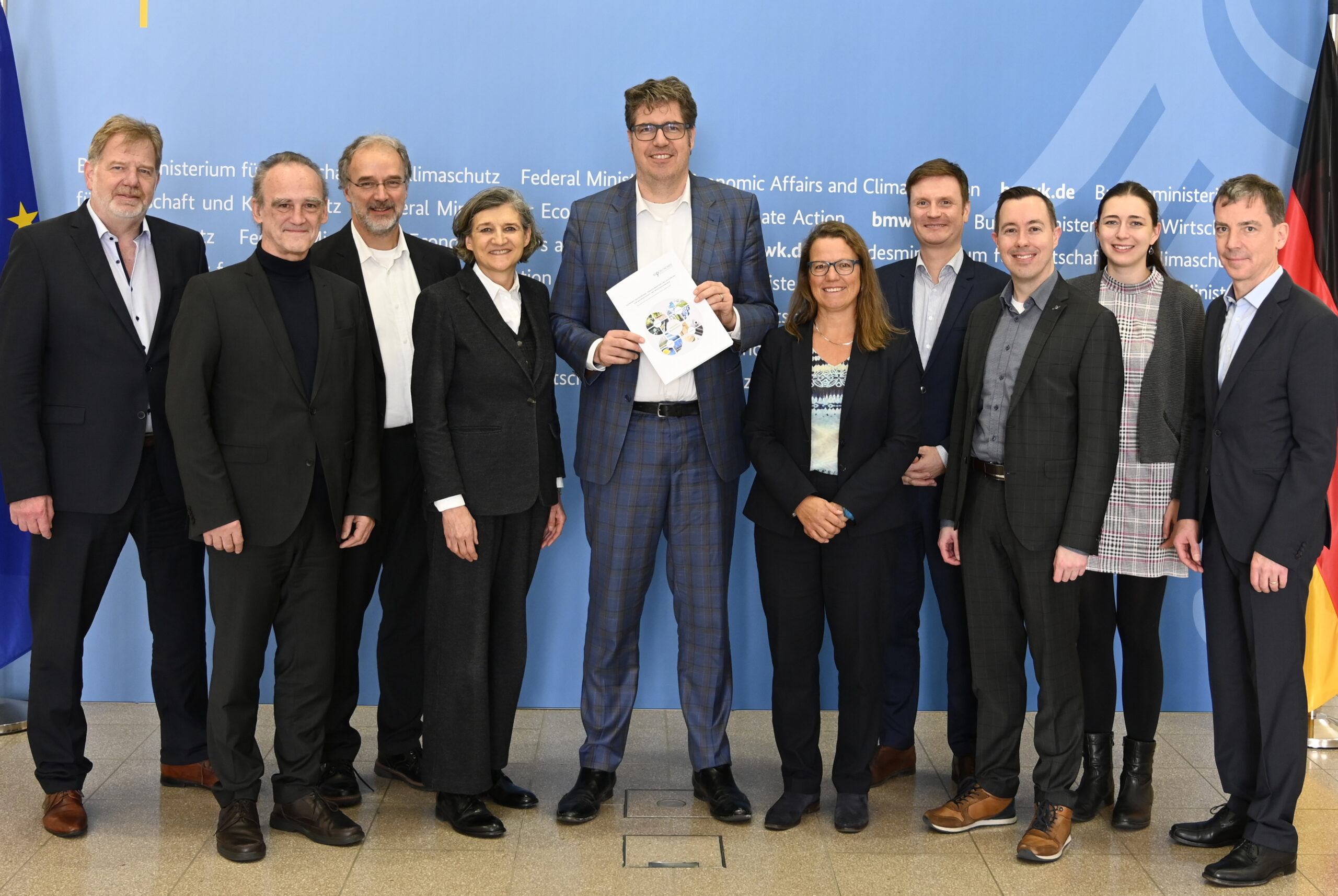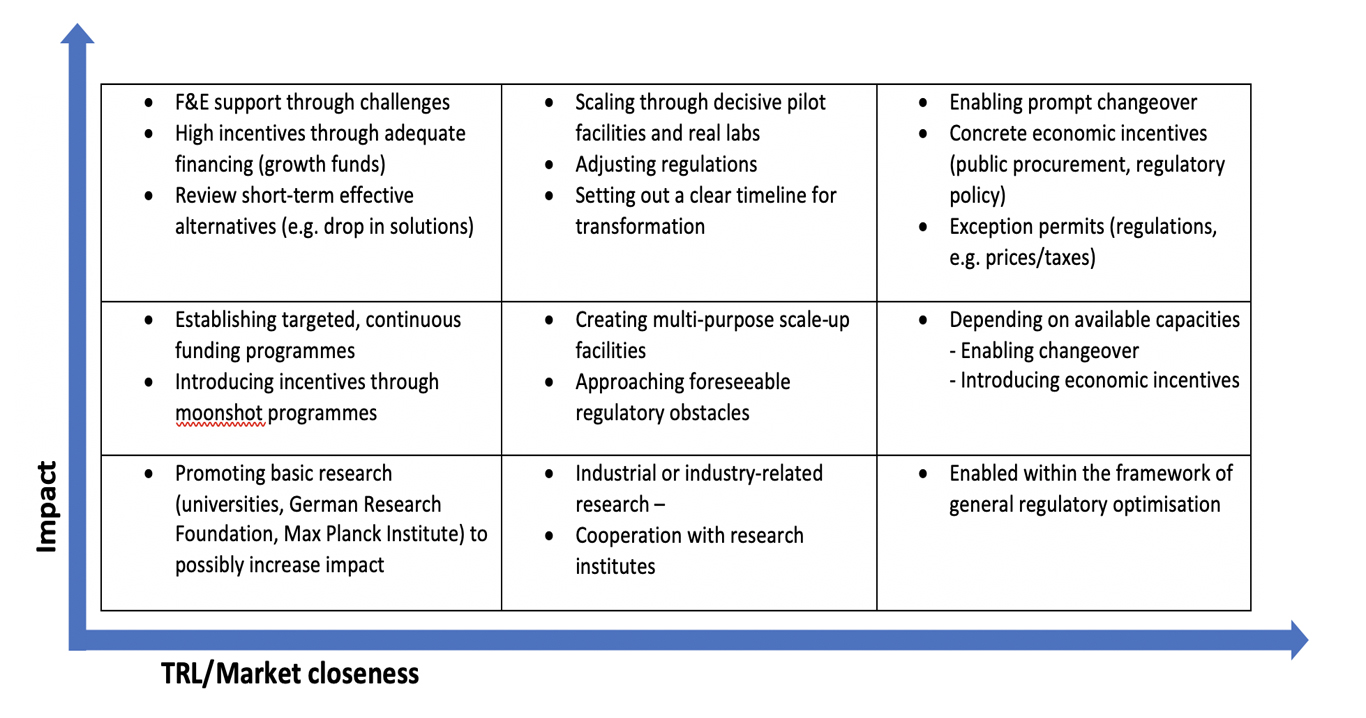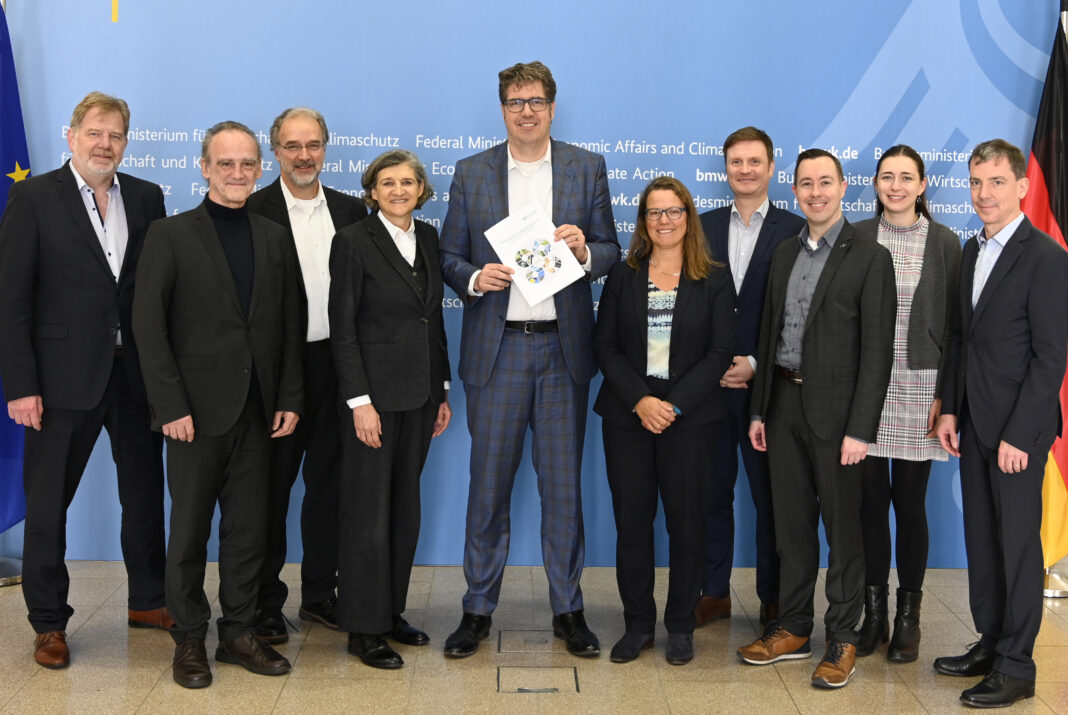The National Bioeconomy Strategy has the clear objective of implementing a knowledge-based bioeconomy in Germany. Despite many commitments, concrete measures were lacking to create a lead market for the bioeconomy in this country. The Dialogue Platform Industrial Bioeconomy has now published a position paper to fill that void.
On 22 November the members of the Dialogue Platform Industrial Bioeconomy officially handed over the position paper “Lead market bioeconomy: transformation and scaling for sustainability and resource transition” to the state secretary of the German Federal Economics Ministry, Michael Kellner. The Dialogue Platform was formed in 2018, under the previous government, to develop measures for the Federal Ministry of Economics to implement the bioeconomy. Since then, various working groups have focused on the topics of raw materials, financing, scale-up and communication. A bioeconomy mission statement was published 2021 by the Dialogue Platform. The position paper that has now been published advises the Federal Ministry for Economics and Climate Change on how the transition in a post-fossil and economically successful industrial age can be carried out, focusing on highly specific measures to make a lead market for bioeconomy a reality.
Scaling up production sites
In order to succeed with the bioeconomy all relevant stakeholders must coordinate their efforts, supported by regulatory, structural and funding policies. The position paper “Lead market bioeconomy” covers all aspects of these endeavours, from the availability of raw materials to market entry. In the following, I will focus specifically on those measures necessary to scale up processes.

Source: Position paper „Lead market bioeconomy“ of the BIO Deutschland e.V. platform „Industrial Bioeconomy“ in German. The link to the English version will be provided later.
In recent years, only a limited number of production plants for bio-based raw materials and chemicals have been built, such as the production facility for glycol owned by UPM in Leuna or for ethanol owned by Südzucker/Crop Energies in Zeitz. Others have been built abroad, such as the plant to produce ethanol from straw in Romania (owned by Clariant) or for rhamnolipids in Slovakia (owned by Evonik). The investment costs have ranged from hundreds of millions to over a billion euros. While these investments and plants demonstrate the general feasibility of the bioeconomy, they are still far too small in scale.
Scaling up funding
The funding program Industrial Bioeconomy launched in 2021 by the Federal Economics Ministry (BMWK) aims to promote larger pilot trials in multi-purpose biorefineries, to cover the engineering costs of single-purpose demonstration biorefineries and to spur the development of innovation clusters. While the program has been well received, problems have also quickly become apparent (some of which have been addressed in the program’s extension).
One problem is that there are not enough pilot plants available for the pretreatment of biomass for downstream processes. In addition, the funding for the engineering aspects of building single-purpose plants only covers about a fifth of the costs for the entire construction. Most of the financial risk therefore stays with the company, as venture capital for hardware and machinery is usually not available. Nevertheless, the funding program of the BMWK has so far been a decisive catalyst, enabling important progress in achieving these goals.
Switching to bio-based raw materials for industry on a very large scale will require more plants and operators in Germany. We need fully integrated pilot and demonstration plants that can handle everything from storage to pretreatment and processing. In order to ensure cost optimization for the systems energy, factors such as water consumption and recycling of water and by-products must be taken into account in plant design. The experts at the Dialogue Platform estimate that we need at least three to five more plants for the conversion of lignocelluloses (each requiring investments of approximately 10 to 15 million euros) and two more demonstration plants (each requiring approximately 20 to 25 million euros), with one of the latter also certified for food production. In addition to lignocelluloses, biogenic waste and “non-food” plants also need to be considered as a raw material base. The aim should be to develop marketable technologies and to use them to build more factories or to license the technology to third parties.

Scaling up finances
In order to build and develop additional much-needed plants, new financing options must be made available. We suggest creating one or more bioeconomy growth funds to provide the necessary financial resources for the transformation of companies of all sizes. Such a growth fund should be structured to enable participation by the public sector, industry and investors. Since 2021, the European Circular Bioeconomy Fund (ECBF) has supported the industrial bioeconomy as a financial partner within the EU. However, the ECBF only invests in later stages, starting from technology readiness level 6 – i.e. after technology demonstration has taken place. That is why we need further funds that invest in earlier stages of development. As in other sectors, start-ups in the industrial bioeconomy also need platforms to find suitable investors. Therefore, a matching platform that is open to all technologies and raw materials should to be set up to bring the various players together.
Even with great efforts and changed framework conditions that might spark market interest for bio-based, climate friendly processes and products, companies would struggle to convert all processes and plants on their own. The European Green Deal Industrial Plan has the goal of strengthening net-zero industry (i.e. carbon-neutral industry) and of supporting the rapid transition to climate neutrality. The Important Project of Common European Interest (IPCEI) offers Europe a set of instruments to secure growth, employment and competitiveness in European industry through state funding. The Dialogue Platform advises creating such an IPCEI for the bioeconomy that can be used to promote disruptive innovations and infrastructure development and to help to make the Green Deal become reality. This would also make an important contribution to the growth, employment and competitiveness of European industry.
Outlook
It is undisputed that we need to change the way we produce goods and provide energy. Greenhouse gas emissions must be reduced, along with resource consumption. We must protect biodiversity and halt climate change in order to leave a livelihood for future generations. Defossilization, decarbonization and circularity are the way to achieve this. We need a knowledge-based and bio-based bioeconomy for Europe. Now is the time to take the experts‘ voices seriously and implement concrete measures.
Source:
- Position paper „Lead market bioeconomy“ of the BIO Deutschland e.V. platform „Industrial Bioeconomy“ (in German).
- Link to the English version: https://www.bmwk.de/Redaktion/DE/Downloads/I/Industrielle-Biooekonomie/position-paper-of-the-dialogue-platform-industrial-bioeconomy.pdf?__blob=publicationFile&v=3
Autor/Autorin

Dr Viola Bronsema
Dr Viola Bronsema is Managing Director of the biotechnology industry association BIO Deutschland e. V. and a member of the German Bioeconomy Council.




